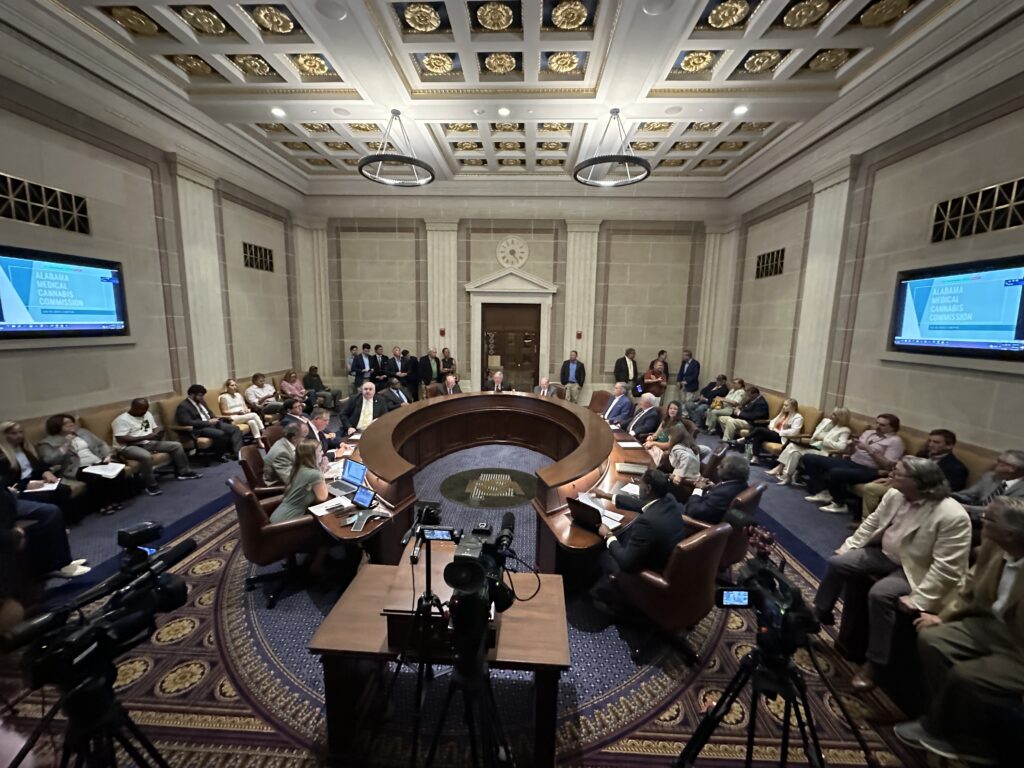Alabama Medical Cannabis Commission to Reevaluate Licensing Process Amidst Lawsuits
LOS ANGELES— In a move that could reshape the landscape of Alabama’s burgeoning cannabis industry, the Alabama Medical Cannabis Commission (AMCC) indicated in a Monday court filing its intention to nullify the licenses it awarded earlier this month. The decision comes amidst claims of violating Alabama’s Open Meetings Act during the August 10th proceedings.
This strategy, as articulated by the AMCC lawyers, aims to placate the concerns raised in lawsuits by companies such as Alabama Always and Hornet Medicinals. These litigants assert that the AMCC contravened state transparency laws by convening and voting behind closed doors.
“AMCC seeks the continuation of the preliminary injunction hearing post their scheduled August 31 meeting. They aspire to address allegations by annulling the licenses given on August 10 and awarding them anew, avoiding any private executive session,” the court document detailed.
However, lingering doubts remain. It is uncertain if merely reissuing the licenses would conform to the Open Meetings Act’s stipulations. This legislation mandates that public entities execute votes and deliberations openly, with rare exceptions. In contrast, the AMCC’s recent deliberations were largely shrouded in secrecy, followed by public announcements devoid of substantial discussions.
The Montgomery County Circuit Court is poised to review the AMCC’s motion in a hearing slated for August 28. The backdrop to this is the judicial injunction from last week, which currently suspends the licensing process after potential infractions of the Open Meetings Act were flagged. This isn’t the inaugural interruption. An earlier pause necessitated a revisitation of the grading process when multiple inconsistencies were detected.
Simultaneously, Monday witnessed a flurry of additional legal maneuvers. Several parties, encompassing three cannabis enterprises, filed motions to enter the ongoing litigation. A noteworthy filing by Alabama Always demanded an expedited discovery concerning the AMCC’s August 10 private session.
This move further fueled the discourse. In the preceding week’s courtroom session, as the AMCC defended its executive assembly, attorney William Webster suggested that any mandated licensing do-over could unveil the “dirty laundry” of applicants. Legal representatives of Alabama Always surmised this to insinuate private discussions regarding applicant details considered “unsavory.” Such revelations, if made public, could potentially skew the licensing trajectory.
Alabama’s evolving cannabis sector remains at a pivotal juncture, with legal decisions in the offing poised to influence its future direction.




































